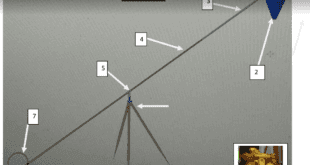A .US. citizen whose communications were monitored by Ethiopian agents from afar is appealing his case, on the grounds that Ethiopia must be accountable for illegal spying that relied on state-sponsored malware to infect his home computer.
The Electric Frontier Foundation (EFF), a nonprofit focused on defending civil liberties and digital rights, has assisted in the Kidane v. Ethiopia case since 2014.
This week, the EFF again argued that Ethiopia is not immune from liability in a case that demonstrates how digital surveillance of journalists, dissidents and political opponents extends beyond the borders of nations with poor human rights records like Ethiopia.
Kidane, who uses a pseudonym in order to protect his family and associates from retaliation, moved to the United States two decades ago but remains connected to members of the political opposition in Ethiopia.
In 2012, Ethiopian authorities installed malware on his computer that arrived embedded in a document, the EFF said. Once installed and then activated from a server in Ethiopia, the malware began to monitor Skype calls, emails, web browser search histories and the family’s general computer activity for about five months.
The Ethiopian government, which the EFF says has never denied that it wiretapped Kidane, won dismissal of the initial lawsuit on the grounds that the digital attack originated in Ethiopia and outside of U.S. legal jurisdiction. Yet Kidane’s legal team argues that Ethiopia’s reliance on software rather than a person to launch an illegal wiretap attack against him doesn’t create immunity from their liability.
The EFF has followed other Ethiopian cases, notably that of Eskinder Nega, as the nation’s suppression of human rights has escalated. A 2014 Human Rights Watch report found the Oromo particularly affected by Ethiopia’s use of surveillance technology, which it attempts to justify as a security or anti-violence measure.
Yet in most cases, the HRW report found the Oromo were under surveillance because they were organizing cultural associations or trade unions, were involved in celebrating Oromo art, music and culture, or were involved in registered political parties.
The complete “They Know Everything We Do” report is available at this link.





